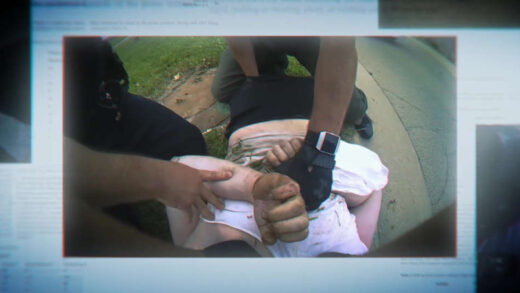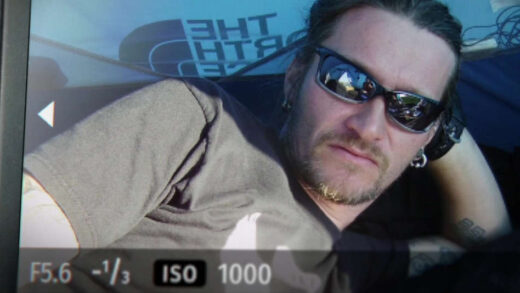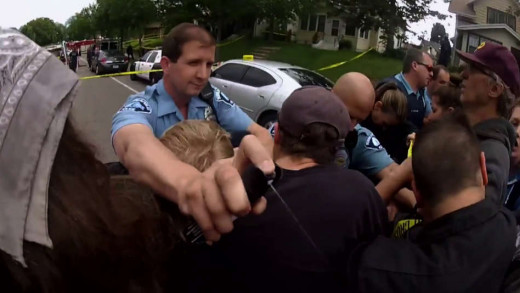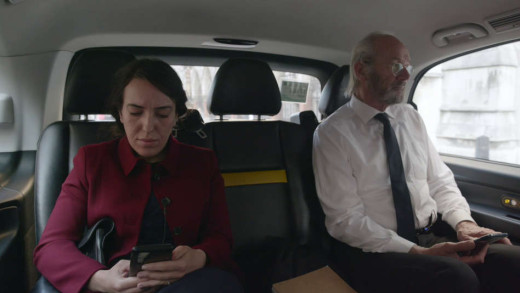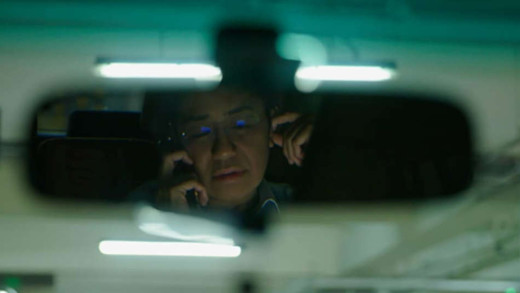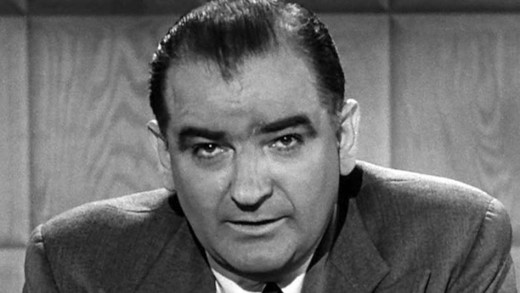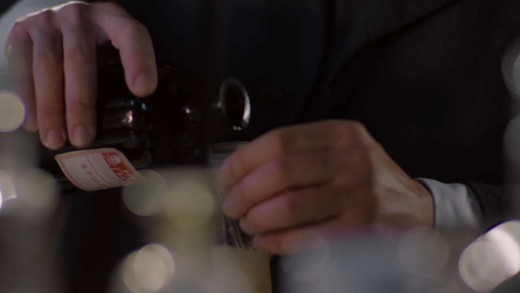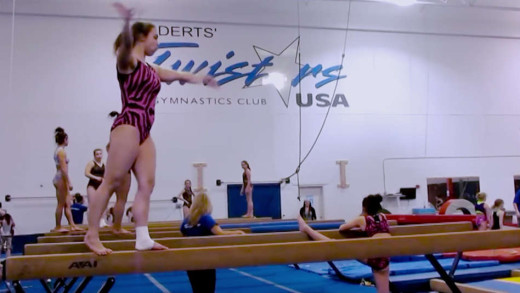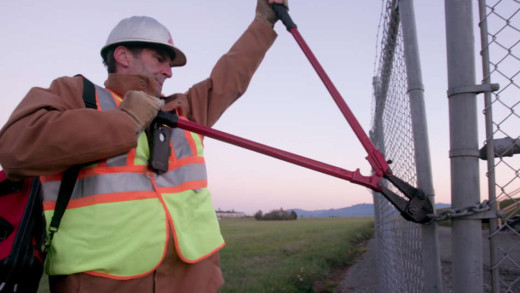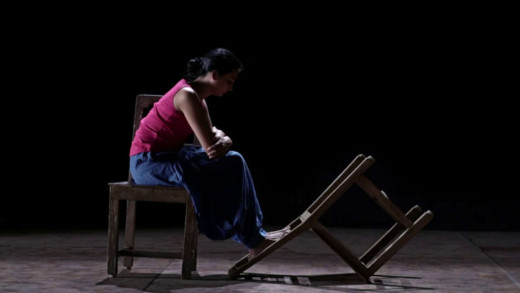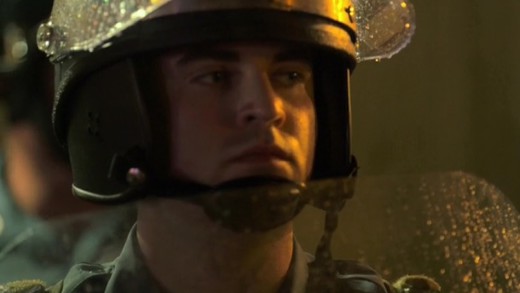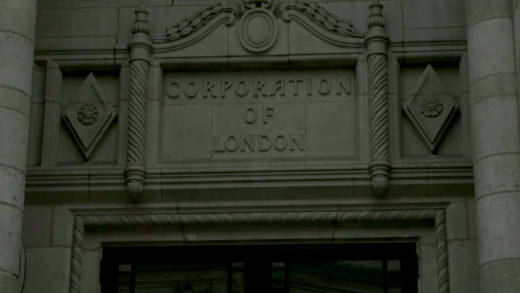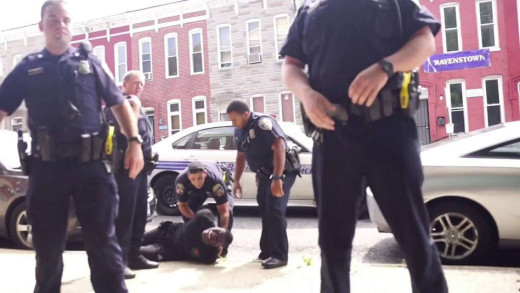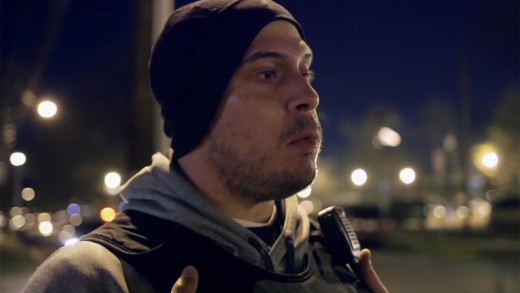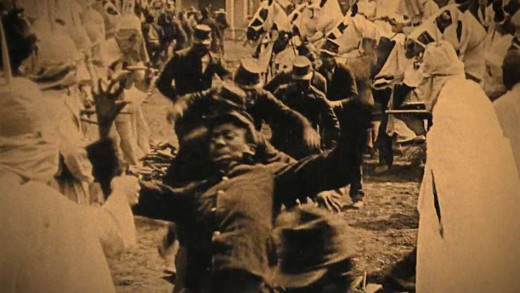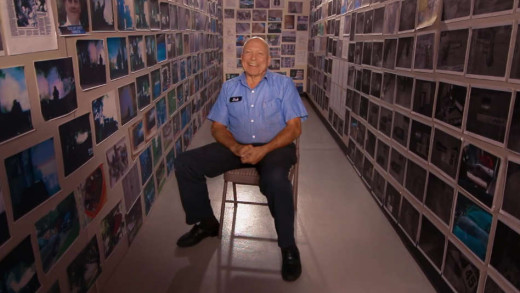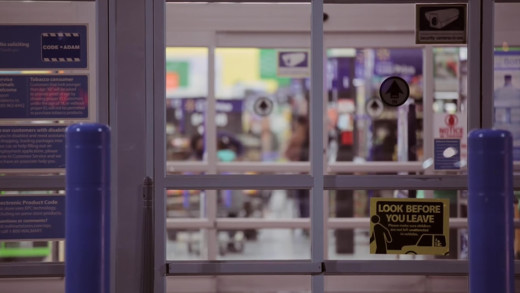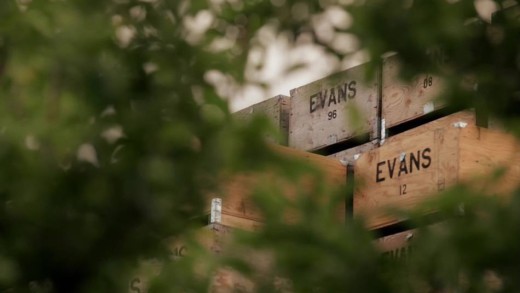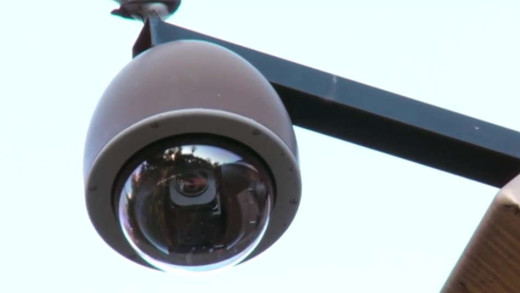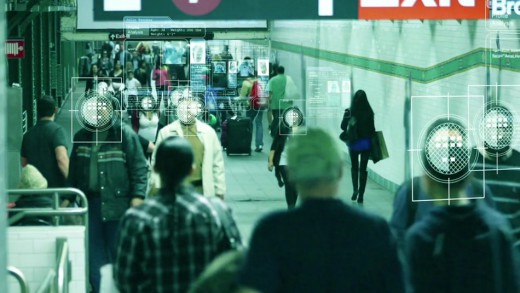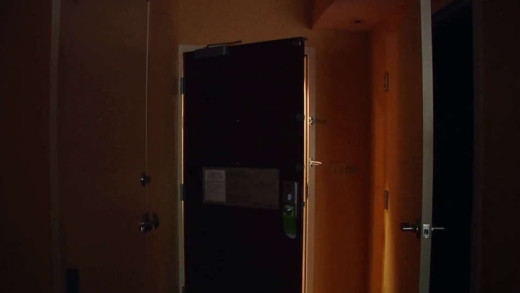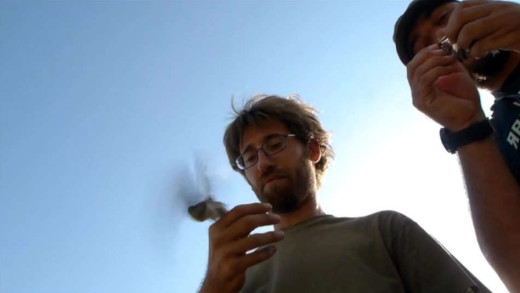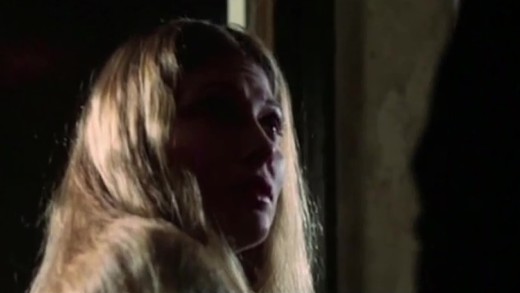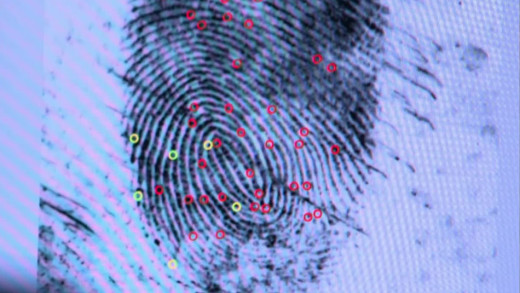Documenting Police Use of Force investigates deaths that occurred after police used tactics like 'prone restraint' (which is a method of restraining a person by placing them face down on the ground which can pose serious risks including difficulty breathing and psychological trauma), forced-sedation, and the use of weapons such as tasers, batons, and other physical violence such as punching, kicking, and pressure-holds. The film also investigates other so-called "less-lethal force" methods used on citizens during police encounters and arrests. The documentary and accompanying reporting draw on police records, autopsy reports and police body-camera footage, offering the most expansive tally of deaths in the United States.
Five women come together for the first time on camera to reveal their experiences of being deceived into decades-long intimate relationships with undercover police officers as part of the Spycops scandal in the United Kingdom. The series examines the secret unit of UK undercover police who undertook these extensive spying operations on the public for over 40 years, including deceiving over 60 women into intimate relationships. Undercover police used false personas, including the identities of dead children to the relationships with members of targeted groups, and in some cases proposed marriage or got protesters pregnant, conceiving children with them.
Police on Trial
The murder of George Floyd by police officer Derek Chauvin on May 25, 2020, was arguably a pivotal event in the history of race and policing in the United States. Police on Trial shows, Chauvin’s encounter with Floyd was not the first time the Minneapolis police officer used excessive force on a Black citizen. Nor was it the first time that questions were raised around the culture of the Minneapolis Police Department itself. The film draws on reporting from the Minneapolis Star Tribune, and features never-before-published police cam video of Derek Chauvin using excessive force years before George Floyd’s death, to document the trial and murder-conviction of Chauvin, and the various responses for police accountability and reform in Minneapolis.
Ithaka
Ithaka depicts the incarceration of WikiLeaks founder Julian Assange through the experience of his wife Stella Assange and his father John Shipton. Julian Assange faces a 175-year sentence if extradited to the United States. His family members are confronting the prospect of losing Julian forever to the abyss of the justice system. This David-and-Goliath struggle is personal, and, with Julian's health declining in a British maximum-security prison, the clock is ticking. Through this behind-the-scenes view of the extradition hearing, the films grasp the personal cost paid by Julian and the true cost of truth.
A Thousand Cuts is a timely film about modern-day journalism and freedom of the press inside the Philippines where the political space has been usurped by social media disinformation campaigns, celebrity propaganda spectacle, and direct organised political violence. The film comes as the world awaits the verdict of the case against of Maria Ressa, the CEO and founder of the news network Rappler, who has been vocal about holding president Rodrigo Duterte accountable for his government's much-criticised and violent "war on drugs." In what is a salient trend of our time, A Thousand Cuts examines the disinformation campaigns and the crackdown on the media, while journalists Maria Ressa and her team place the tools of their trade--and their freedom--on the line in defence of truth and democracy.
McCarthy chronicles the rise and fall of Joseph McCarthy, the United States senator who came to power after a stunning victory in an election that no one thought he could win. Once in office, he declared that there was a vast conspiracy threatening the United States--not emanating from a rival superpower, but from within. Then, without restraint or oversight, he conducted a vast crusade against those he accused of being "enemies of the state," a chilling campaign marked by groundless accusations, bullying, intimidation, grandiose showmanship, and cruel victimisation. With lawyer Roy Cohn at his side, McCarthy belittled critics, spinning a web of lies and distortions while spreading fear and confusion. After years in the headlines, he was brought down by his own excesses and overreach.
By the close of the Industrial Revolution, the food supply in the United States was tainted with frauds, fakes, and legions of new and untested chemicals, dangerously threatening the health of the public. The Poison Squad, based on the book by the same name from author Deborah Blum, tells the story of Dr. Harvey Wiley, a government chemist who was determined to banish these dangerous substances from dinner tables, and so took on powerful food manufacturers and their allies. Wiley embarked upon a series of bold and controversial trials on 12 human subjects who would become known as the “Poison Squad.” Following Wiley’s unusual experiments and tireless advocacy, the film charts the path of the forgotten heroes who together laid the groundwork for consumer protection laws in the United States, and ultimately, paved the way for the creation of the Food and Drug Administration.
At the Heart of Gold: Inside the USA Gymnastics Scandal reveals a dangerous athletic culture that prioritised winning over everything else, including protecting young female athletes. For more than 30 years, Larry Nassar worked with gymnasts, as a respected trainer and doctor. He was charming, taught at church, volunteered in the community, and was seemingly well-liked throughout. He treated girls' aches and pains, becoming a friend and confidant to many along the way, while also sexually abusing them during sessions for many years. When some girls began to speak up about their experiences, they were silenced, gaslighted or denied, all the way up to the highest levels of management, across multiple sporting institutions. After many complaints and eventually a cumulative legal investigation, Nassar ends up exposed as a serial sex offender. This film unpacks the scandal, its cover-up, and aftermath, through interviews with dozens of survivors, as well as coaches, lawyers and journalists, as one of the most high-profile paedophile trials in recent years. It documents the grooming, methods, and psychology of a charismatic sexual abuser, as well as the culture that enables and perpetuates it.
If a crime is committed in order to prevent a greater crime, is it excusable? Is it, in fact, necessary? The Reluctant Radical follows Ken Ward as he confronts his fears and acts on these questions to stop climate change. After twenty years leading some of the most renowned mainstream environmental organisations, Ken witnesses first-hand how ineffective and unthreatening they are. As their efforts fail, and environmental collapse increases in scope and speed, Ken comes to see how direct action civil disobedience is the most effective political tool to deal with catastrophic circumstances. Ken breaks the law, to fulfil his obligation to future generations, to stop the oil economy. By following Ken for a year and a half through a series of direct actions, this film culminates with his participation in the coordinated action that shut down all the tar-sands oil pipelines in the United States on October 11, 2016. The film reveals the personal costs but also the true fulfilment that comes from following one's moral calling, even if that means breaking the law and its consequences. Ken has no regrets.
In 1992, Bhanwari Devi, an Indian social worker hailing from the Kumhar caste in rural Rajasthan, was gang-raped by upper caste men for having the temerity to intervene and stop the child-marriage of an infant. The subsequent acquittal of the accused in connivance with the State machinery outraged India and galvanized women’s activism that led to the Vishaka Guidelines, and subsequently, the Sexual Harassment of Women at Workplace Act in 2013. In this feature-length documentary shot by an all-women crew, Director Vaishnavi Sundar juxtaposes the law on paper with the ground realities, through this first-of-its-kind log of stories and experiences of over two dozen Indian women; tales of sexual violence that they face--from opulent corporate offices, to construction sites, to manual scavenging--and their fight for justice against an obstinate patriarchal State. But What Was She Wearing? attempts to portray the impotence of this law and the impossible odds Indian women are up against in pursuit of justice.
Do Not Resist documents, from the perspective of the police, their view of the social unrest following the shooting and killing of Michael Brown by police in Ferguson, 2014, against a backdrop of the routine and escalating use of military tactics and high-powered weaponry by local police forces throughout the United States in the past two decades. Military equipment deployed throughout the Middle East returns home to be used against the citizenry. Local police recruitment and training is awash in military commandments backed by views of escalating 'righteous' violence and sadism. Meanwhile curfews are imposed, along with frivolous drug raids and incessant racial profiling. The voices of concerned citizens ignored. What is the cultural and technological trajectory here?
The Spider's Web: Britain's Second Empire shows how Britain transformed from a colonial power into a global financial power. At the demise of empire, the City of London's financial interests created a web of offshore secrecy jurisdictions that captured wealth from across the globe and hid it behind obscure financial structures, and webs of offshore islands. Today, up to half of global offshore wealth may be hidden in British offshore jurisdictions, and these are now the largest players in the world of international finance. Based in part on the book Treasure Islands by expert Nicholas Shaxson, and through contributions from former-insiders, academics, and campaigners for justice, The Spider's Web reveals how, in the world of international finance, corruption and secrecy have prevailed over regulation and transparency, and how the United Kingdom is a pioneer of the modern corrupt global economy.
Copwatch
Copwatch depicts WeCopWatch, an organisation dedicated to video recording the police in the United States. For example, Cop Watch members capture original video of the deaths of Eric Garner in Staten Island and Freddie Gray in Baltimore. Its members legally record and document police arrests as part of a movement for police accountability and transparency, but often find themselves to be the victims of chaos and police brutality as a result of the culture of extreme police misconduct and violence. The stories are told through Ramsey Orta, Kevin Moore, who filmed the police abuse of Freddie Gray, and David Whitt who lived in the apartment complex where Michael Brown was killed, as well as Jacob Crawford, who co-founded Copwatch groups inspired by the Berkeley Copwatch group. The film shows how Cop Watchers are dedicated to bringing awareness to their community, by exposing police brutality and harassment.
Audrie & Daisy is a documentary about the trend of teenage girls in the United States being sexually assaulted by their male classmates, and having the assaults recorded and shared on social media. It looks at the trend that the legal system tends to systematically minimise and dismiss cases, resulting in victimised girls not receiving justice. Girls often end up getting bullied both in school as well as online for being rape victims, and the pictures and videos are posted online--almost as trophies--by teens that have committed and witnessed these crimes. The online forum for sharing these images and comments has become the new public square of shame for adolescents. Audrie & Daisy aims to shed light on this dark corner of life facing young adults, and serves to form a powerful tool for honest conversation, analysis, and real justice.
Over the past several years, a seemingly relentless string of killings by police of unarmed black men—Michael Brown in Ferguson, Freddie Gray in Baltimore, Eric Garner in New York—has reignited issues around race, policing and civil rights in the United States that have been languishing unresolved for decades. Recently the issues are critical enough that the Department of Justice has stepped in to mandate reform of several police forces renowned for brutality and institutional abuses of power. In Policing the Police, journalist Jelani Cobb gets up close and personal with police departments and officers alike, to show from the inside the difficulties these institutions now face of fixing a broken relationship with the community after decades of mistrust. Is it even possible with the current police culture? Policing the Police is a powerful case study of these questions, and a light on just how much has to change.
13th
13th explores the intersection of race, justice, and mass incarceration in the United States, as titled after the Thirteenth Amendment to the United States Constitution, adopted in 1865, which purported to abolish slavery throughout the United States and end involuntary servitude except as a punishment for conviction of a crime. The film contends that slavery has been perpetuated since the end of the American Civil War through criminalising behaviour and enabling police to arrest poor enslaved people and force them to work for the state under convict leasing; suppression of African Americans by disenfranchisement, lynchings and Jim Crow; politicians declaring a war on drugs that weighs more heavily on minority communities and, by the late 20th century, mass incarceration of people of colour in the United States. 13th examines the prison-industrial complex and the emerging detention-industrial complex, discussing how much money is being made by corporations from mass incarcerations.
Arresting Power documents the history of conflict between the Portland police and members of the community throughout the past fifty years in the United States. The film portrays personal stories of victims of police misconduct, the families of people who were killed by police, and members of community activist groups working for reform and abolition. Using experimental filming techniques, meditative footage, and official police radio audio feeds, Arresting Power pieces together a space for understanding a lens on the impacts of police violence and community attitudes.
Peace Officer explores both the militarisation and increasingly violent culture of police forces, as told through the career of William Lawrence, a former sheriff of Davis County in Utah United States, who established and trained the state's first SWAT team. As a gifted investigator, Lawrence's savvy skills help break the Ted Bundy case. He also sees SWAT enter the public consciousness and transform the culture of policing throughout the 1970s, along with the convergence of the War on Drugs on policing attitudes and police violence. He eventually leaves public office, concerned, when soon after, his son-in-law is killed in an emergency call gone awry by the very same SWAT unit he created 30 years ago. An internal investigation of course finds no police wrongdoing, so Lawrence turns to his own renowned investigative skills. He sets out to not only uncover the truth of his son-in-law's homicide, but to tackle the culture and attitudes of modern-day policing on a national level.
In Requiem for the American Dream, renowned intellectual figure Noam Chomsky deliberates on the defining characteristics of our time—the colossal concentration of wealth and power in the hands of the few and fewer, with the rise of a rapacious individualism and complete collapse of class consciousness. Chomsky does this by discussing some of the key principles that have brought this culture to the pinnacle of historically unprecedented inequality by tracing a half century of policies designed to favour the most wealthy at the expense of the majority, while also looking back on his own life of activism and political participation. The film serves to provide insights into how we got here, and culminates as a reminder that these problems are not inevitable. Once we remember those who came before and those who will come after, we see that we can, and should, fight back.
Rape on the Night Shift is a harrowing investigation into the rampant sexual abuse of the many thousands of unseen women who clean the shopping centres, banks and offices of some of the largest companies throughout the United States. The cleaning companies and contractors themselves are some of the largest companies throughout the country and the world. This report follows a prior investigation about systemic abuse of migrant women working in America's fruit and vegetable fields, as well as packing plants and industry. Both set out to document the many aspects of a booming rape culture, driven in part by the synergy of a failure of criminal prosecutions, the legal system, a culture of pornography, the realities for migrant workers, and a perfect storm for human trafficking.
Rape in The Fields is the first part of a year-long reporting effort into the systemic abuse of migrant women working in the fruit and vegetable fields, packing plants and industry of the United States. The film travels from the almond groves of California's Central Valley to the packing plants of Iowa, from the apple orchards of Washington's Yakima Valley to the tomato fields of Florida, speaking with dozens of women who have been sexually assaulted and abused on the job. What is shown is that in the vast fields and orchards of today's vast agribusiness, it's easy for a rapist to stalk his victims, and the systems function in such a way to protect the rapist, rather than the workers. Many workers are also immigrants who dare not even denounce their attackers for fear they'll be deported. The situation on the whole is rife for ensuring abuses. A Human Rights Watch report published in May of 2014 found that rape and other forms of sexual abuse and harassment of female workers was a common problem. This report sets out to shed a light on that problem and expose the new-style slavery and abuse of workers that still continues to this day.
For the past 15 years, the misnomer "War on Terror" has been used by the United States to justify everything from mass surveillance and spying on its own citizens, to the use of secret drone strikes to kill people without trial or sometimes even evidence. Governments have always applied surveillance to those they consider a political threat, but the scale of the clandestine PRISM programme, which collects the data of billions of innocent people all across the globe, is unprecedented. Likewise is the call for the journalists who published the documents revealing the PRISM programme to be prosecuted. In the wake of relations about sustained, systematic abuses of power, it is apparent that in many areas, the United States operates on spurious interpretations of law, often explained in confidential memos, hidden from the public. Other times, the law is disregarded entirely. So what does this mean for resistance? How can citizen rights be reconciled with a rogue state security apparatus?
Drone
In the wake of the September 11th attacks, amongst the ravaging of war, the United States has been secretly deploying drones to carry out assassinations throughout the Middle East. The drones are increasingly piloted by the likes of young computer gamers groomed by screen culture and computer games of war, where in many cases, the Pentagon is directly involved in the creation of such games as recruitment tools, actively working to lure young people proficient with technology into the new era of the military-industrial-complex. Drone unravels this complex phenomenon while travelling to places such as Waziristan, where innocent civilians, including children and rescue workers are routinely secretly killed, where families and communities ravaged by the drone strikes search for understanding, accountability and adjustment to the daily horrors. The film also takes a look at the young people sitting behind the screens of the new war machines, half a world away, that actually pull the trigger, asking what kind of world is being built in the rise of seemingly endless and lucrative war driven by technological escalation.
The Hacker Wars explores the strange duality of the modern-day computer-hacker as a mischievous provocateur, but also in some cases, societal activists with underlying political fervour, serious or not. The film explores this by profiling some of the renowned characters that have tickled the secretive inner workings of corporations and government agencies for various reasons—ranging from the nefarious and narcissistic, to the political and scandalous. Some do it for the lulz, others do it to prove a point, and others do it to "speak truth to power." In any event, many have faced severe punishments as a result. By following through this, The Hacker Wars touches on issues of whistleblowing, social justice, and power relations, in a time where computer technologies represent extreme power and control. But for whom? And what? This poses the question in deciphering the personalities of the hackers themselves. Are they serious activists with good intentions, or are they driven by insane ideologies?
Private Violence focuses on the issue of domestic violence, as told through two survivors: Kit Gruelle, a domestic violence victim turned advocate who seeks justice for all female violence survivors; and Deanna Walters, whose estranged husband Robbie kidnapped and beat her for four days in the cab of his truck. They were pulled over by police and she was taken to the hospital, but in spite of Deanna's devastating injuries, Robbie was not arrested. The film follows Deanna's journey as she rebuilds her life and fights to place Robbie behind bars. Ultimately, Private Violence centers on dispelling the logic of the commonly asked question: “Why didn’t she just leave?”
Migratory Songbird populations are drastically collapsing. Many species have already been driven extinct. But yet, as an endangered species, the birds are still targeted by poachers. Millions of birds are unlawfully slaughtered each year for large sums on the black market. Emptying the Skies explores the wonder of these marvelously tiny globe-flying birds, along with the story of the Committee Against Bird Slaughter, an action group of citizens who have dedicated their lives to directly stop and confront the poachers. They disrupt and destroy trapping, freeing as many birds as possible, changing the world one bird at a time.
Rape Myths on Trial is a provocative presentation by a career criminal prosecutor and advocate for victims of sexual violence, Anne Munch. She examines how cultural attitudes shape the outcomes of rape and sexual assault cases by drawing on years of experience prosecuting sex crimes, showing how rape cases often turn on the involvement of an "unnamed conspirator" -- the often-unexamined complex of myths and stories we tell ourselves as a culture about sex, gender, power, and responsibility. By using examples from real cases, and harrowing evidence from actual emergency calls, Munch reveals how these assumptions that juries bring into the courtroom often stack the odds against victims, and at the same time challenges us to think critically about how our own assumptions might unintentionally reinforce victim-blaming. The result is a stunning look inside the criminal justice system and an incisive analysis of this culture's warped views of women's sexuality and rights as human beings.
From the courtroom to the lounge room--helped extensively by television and the infamous series "CSI"--forensic science brims with flash and glamour, where cutting-edge technology always reveals the "truth," and is routinely called on to solve the most difficult criminal cases with ease and "objectivity." But how reliable is the science behind forensics and its methods as they interface with the legal system? The Real CSI investigates these questions and finds serious flaws in some of the best-known tools of forensics, with systemic inconsistencies in how evidence is presented in the courtroom, along with how the culture of entertainment of this sort can seriously skew a jury's perceptions. From the sensational murder trial of Casey Anthony, to the FBI's botched investigation of the Madrid bombing, to capital cases in rural Mississippi of the United States; The Real CSI documents how a field with few standards and unproven science can seriously undermine the concept of justice, and what this means for a future of continued technological escalation...
